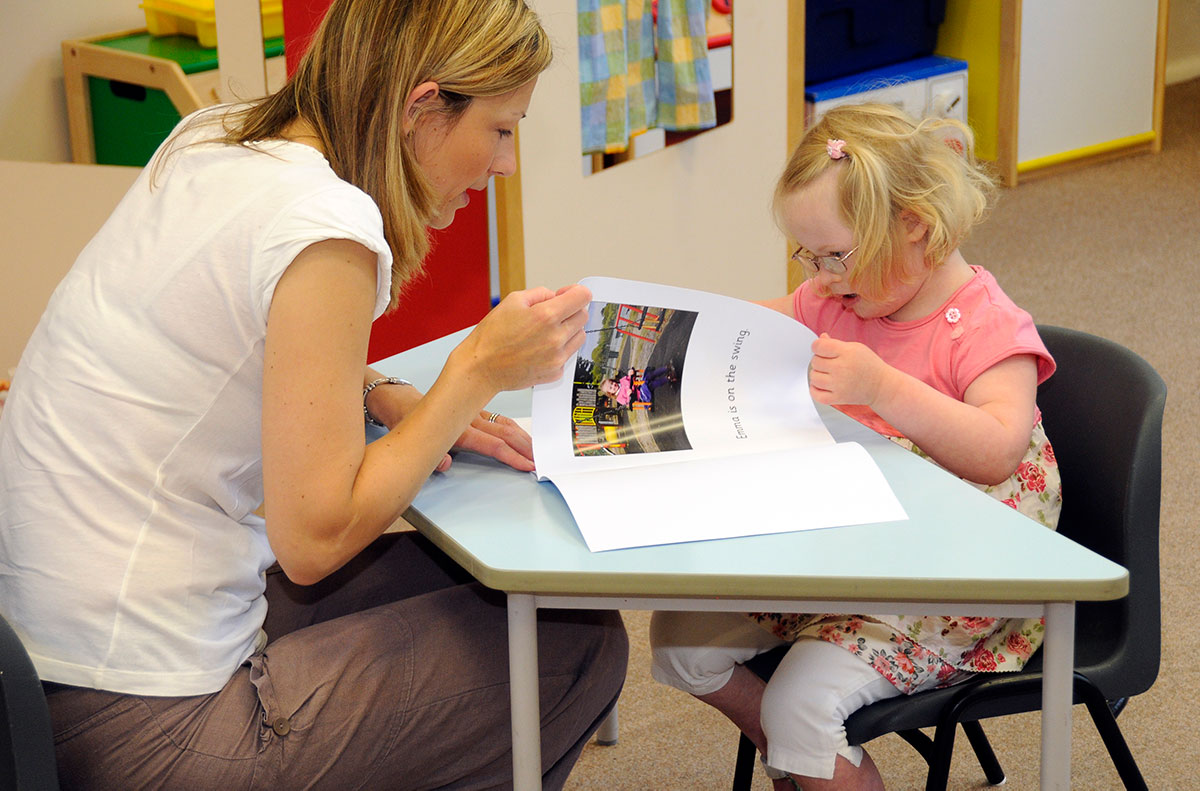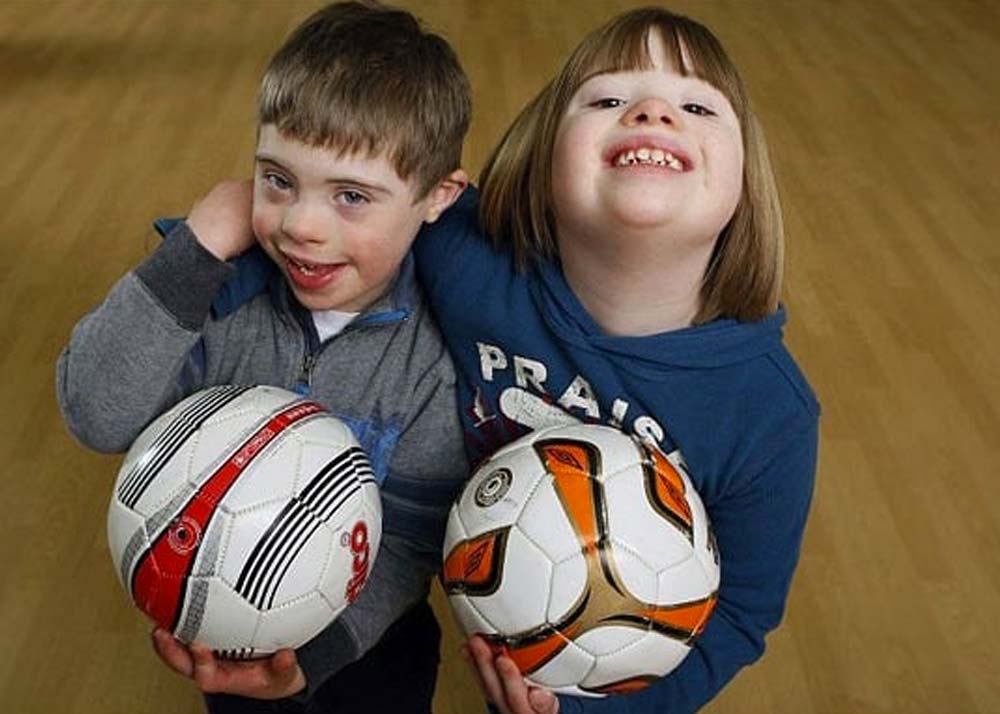Top 10 Parenting Tips for Down Syndrome Children
Embrace your child’s uniqueness, celebrating achievements to boost confidence. Encourage independence by fostering self-care skills and consistent routines. Use visual aids and sign language to enhance communication early on. Seek support networks and advocate for inclusive education tailored to your child’s needs. Promote physical activities and social connections to enhance development. Remember to take care of yourself too with self-care routines to manage stress effectively. These tips provide a solid foundation for nurturing your child with Down syndrome, helping them thrive in various aspects of their growth. Embracing these strategies will support your child’s journey towards a fulfilling and enriched life.
Key Takeaways
- Embrace uniqueness and celebrate achievements to boost confidence and motivation.
- Encourage independence through consistent routines and fostering self-care skills.
- Use visual aids and sign language to enhance communication from a young age.
- Seek support networks and advocate for inclusive education for tailored strategies.
- Promote physical activity, social connections, and teamwork for development.
Embrace Uniqueness

Embracing the uniqueness of your child with Down syndrome is key to fostering a positive and nurturing environment for their growth and development. By embracing these differences, you not only build confidence within your child but also create a supportive atmosphere where they can thrive.
Celebrate the uniqueness that your child brings into your life, recognizing that their individuality is a strength that sets them apart in a beautiful way. Encouraging growth in all aspects of their life, whether it be emotional, physical, or intellectual, is essential for their overall development.
As a parent, it’s important to understand that your child may have different needs and abilities compared to other children. Embrace these distinctions and tailor your support to suit their specific requirements. By doing so, you create a space where your child feels valued and accepted for who they are.
Encourage Independence

Encouraging independence in your child with Down syndrome is crucial for their growth and development.
By fostering self-care skills like dressing and feeding, you empower them to become more self-sufficient.
Supporting their decision-making abilities and promoting task independence will help them gain confidence and thrive.
Foster Self-Care Skills
Help your child with Down syndrome develop essential self-care skills by nurturing their independence from an early age. Encouraging personal hygiene routines such as brushing teeth, bathing, and grooming can empower your child and boost their confidence. Simple steps like breaking down tasks into smaller, manageable parts or using visual schedules can make these activities more accessible.
Additionally, involving your child in meal preparation not only teaches them important life skills but also promotes independence. Start with easy tasks like stirring, pouring, or setting the table, gradually progressing to more complex activities as their skills improve.
Creating a supportive environment where your child feels safe to explore and learn is key. Celebrate their successes, no matter how small, and provide gentle guidance and encouragement when they face challenges. By fostering self-care skills, you’re helping your child with Down syndrome build a strong foundation for independence and self-confidence in their daily life.
Support Decision-Making Abilities
To empower your child with Down syndrome further, it’s important to nurture their decision-making abilities and encourage independence in their daily life. Developing decision-making skills and problem-solving abilities will greatly benefit your child’s overall growth and confidence. Encouraging your child to make choices, even small ones, helps them learn to assert their independence and build self-esteem.
Provide opportunities for your child to make decisions based on their abilities. Start with simple choices like selecting their outfit or choosing a snack. As they grow, involve them in decisions about their education, activities, and future goals. Support their choices and guide them through the decision-making process, helping them weigh options and understand consequences.
Independence is key to fostering empowerment in your child. Allow them to try new tasks and activities on their own, offering support and encouragement along the way. By promoting independence, you’re helping your child develop essential life skills and preparing them for a more self-sufficient future.
Promote Task Independence
How can you empower your child with Down syndrome to become more independent in completing tasks?
Encouraging task exploration and skill development is key to fostering independence. Provide opportunities for your child to try new activities and learn different skills at their own pace. Break down tasks into smaller, manageable steps, offering assistance and guidance as needed. Celebrate each achievement, no matter how small, to boost your child’s confidence and motivation.
Independence building is a gradual process that requires patience and a supportive environment. Create a safe space where your child feels encouraged to take on challenges and make decisions. Offer choices whenever possible to help them practice decision-making and build autonomy. Use positive reinforcement and praise to acknowledge their efforts and progress.
Foster Communication Skills

To help your child with Down syndrome develop their communication skills, consider using visual aids like picture cards or communication boards.
Encouraging the use of sign language can also be beneficial in enhancing their ability to express themselves.
Use Visual Aids
Using visual aids can greatly enhance communication skills for children with Down Syndrome, helping them express themselves more effectively. Visual schedules and communication boards are valuable tools that provide structure and support in daily routines, making tasks more manageable and reducing anxiety. These aids offer visual cues and prompts that aid in comprehension and foster independence.
In addition to visual schedules and communication boards, sensory tools can also play an essential role in communication development. Sensory tools like fidget toys or textured objects can help children with Down Syndrome regulate their sensory experiences, allowing them to focus better on communication tasks.
Moreover, incorporating educational resources that are visually stimulating and tailored to their learning needs can make learning more engaging and effective.
Encourage Sign Language
Encouraging the use of sign language can greatly foster communication skills for children with Down Syndrome, providing them with an alternative method to express themselves effectively.
Baby sign language is a valuable tool that aids in communication development for children with Down Syndrome. By introducing signs for common words and phrases early on, you can help your child convey their needs and thoughts more easily. Sign language can act as a bridge to verbal communication and support speech development.
Early intervention is key, and incorporating sign language alongside speech therapy can enhance your child’s overall communication abilities. It’s essential to start introducing signs as soon as possible to encourage communication from a young age.
Consistent practice and repetition will help solidify their understanding and usage of signs. Remember, every effort you put into encouraging sign language will contribute to your child’s communication skills and confidence.
Provide Consistent Routines
Establishing consistent routines is essential when parenting Down syndrome children as it provides them with structure and predictability, helping them feel secure and supported in their daily lives.
Bedtime routines and mealtime schedules can be particularly important in maintaining a sense of stability for your child. Creating a calm and soothing bedtime routine can help them relax and prepare for sleep, while sticking to regular mealtime schedules can aid digestion and overall health.
When it comes to playtime activities, offering a variety of engaging and stimulating options can keep your child entertained and promote their development. Additionally, setting up homework routines can assist in creating a conducive environment for learning and concentration.
Celebrate Achievements

Make sure to acknowledge and celebrate your child’s achievements, big or small, to boost their confidence and motivation. Celebrating progress is essential in nurturing a positive self-image in your child with Down syndrome.
Recognize milestones, whether it’s learning a new skill, making a new friend, or showing determination in completing a task. By celebrating these achievements, you’re reinforcing their sense of accomplishment and encouraging them to continue working towards success.
Sharing these achievements with your child’s support network, whether it’s family, friends, or teachers, can also create a sense of community and pride around your child’s growth. Documenting these moments, through pictures, videos, or even a journal, allows you to track their progress over time and reflect on how far they’ve come.
Seek Support Networks
You’re not alone in this journey. Join online groups, attend local events, and connect with professionals who can offer guidance and support.
Building a strong network can provide you with valuable resources, advice, and a sense of community as you navigate the challenges and joys of parenting a child with Down syndrome.
Join Online Groups
Consider connecting with online groups to seek support networks that can provide valuable guidance and understanding as you navigate parenting a child with Down syndrome. Online resources, support groups, virtual workshops, and webinars can offer a wealth of information and a sense of community, helping you feel less alone in your journey. These platforms allow you to interact with other parents facing similar challenges, share experiences, ask questions, and access resources tailored to your child’s needs.
Joining online groups dedicated to Down syndrome can be a source of comfort and empowerment. You can learn about the latest advancements in therapies, educational strategies, and advocacy efforts. Additionally, these groups often organize virtual workshops and webinars where experts share insights on various aspects of raising a child with Down syndrome.
Through these online communities, you can find encouragement, practical tips, and emotional support to help you navigate the unique joys and challenges of parenting a child with Down syndrome.
Attend Local Events
Attending local events can provide valuable opportunities to connect with other parents and caregivers of children with Down syndrome, fostering a supportive network that can offer guidance and understanding in your parenting journey. Community involvement through these gatherings offers a sense of belonging and shared experiences, creating a supportive environment where you can exchange tips and resources with others facing similar challenges.
Family outings to local festivals and cultural events not only provide enjoyable experiences for your child but also allow you to meet and bond with other families in a relaxed setting.
Engaging in these activities can help you build a strong support system, where you can seek advice, share stories, and celebrate achievements together. By attending local events, you may discover valuable resources, such as therapy centers or educational programs, recommended by other parents.
These connections can boost your confidence and provide a sense of unity within the Down syndrome community, reminding you that you aren’t alone in this journey.
Connect With Professionals
Connecting with professionals and seeking support networks is vital for parents of children with Down syndrome to access valuable resources and guidance in maneuvering their unique parenting journey. Early intervention plays a significant role in supporting your child’s development.
Collaborating with therapists specializing in Down syndrome can provide tailored strategies to enhance your child’s skills and abilities. These professionals can offer valuable insights and techniques to address specific challenges your child may face.
Medical professionals experienced in Down syndrome can offer specialized care and monitor your child’s health needs effectively. They can provide guidance on managing any associated medical conditions and offer advice on promoting overall well-being. Establishing a strong support network with these professionals can help you navigate the complexities of raising a child with Down syndrome more confidently.
Promote Physical Activity

Encouraging your child with Down syndrome to engage in regular physical activities is essential for their overall health and well-being. Incorporating a mix of outdoor adventures and indoor games can make exercise enjoyable and beneficial.
Outdoor activities like nature walks, bike rides, or playing at the park can help improve motor skills and coordination. Indoor games such as dancing, yoga, or balloon volleyball can be fun ways to keep your child active regardless of the weather.
Team sports like soccer, basketball, or swimming can foster teamwork and social skills while providing physical exercise. However, if team sports are challenging, solo activities like riding a tricycle, jumping rope, or practicing yoga poses can build confidence and strength at their own pace.
It’s important to find activities that your child enjoys and feel comfortable with, ensuring that physical activity becomes a positive part of their routine. By promoting physical activity, you aren’t only enhancing their physical health but also boosting their self-esteem and overall well-being.
Cultivate Social Connections

To help your child with Down syndrome thrive, fostering social connections is vital to their development and well-being. Community involvement plays a significant role in providing opportunities for your child to interact with others. Encouraging friendship-building activities can help your child cultivate meaningful relationships and feel a sense of belonging.
Peer relationships are essential for developing social skills. Encourage your child to participate in group activities or clubs where they can interact with peers who share similar interests. These interactions can help them learn important social cues, communication skills, and how to navigate different social situations.
Supporting your child in forming friendships can have a positive impact on their emotional well-being and self-esteem. Be proactive in creating opportunities for your child to socialize with others, whether through playdates, community events, or organized group activities.
Advocate for Inclusive Education
Ensuring inclusive education for your child with Down syndrome is essential for their academic and social development. When advocating for inclusive education, consider the importance of inclusive playgrounds and sensory activities that cater to your child’s unique needs and promote interaction with peers.
Encourage schools to provide individualized education plans tailored to your child’s strengths and challenges, fostering a supportive learning environment. Inclusive classrooms offer opportunities for peer support, promoting social connections and a sense of belonging.
Emphasize the benefits of your child learning alongside typically developing peers, as this can enhance their communication skills and boost their self-esteem. By advocating for inclusive education, you aren’t only creating a more inclusive society but also setting the stage for your child’s future success.
Practice Self-Care

Taking care of yourself is essential when parenting a child with Down syndrome. As a parent, it’s easy to prioritize your child’s needs above your own, but practicing self-care is vital for your well-being and ability to support your child effectively.
Establishing self-care routines can help you manage stress and maintain good mental health. Make time for yourself, whether it’s through personal hobbies or relaxation techniques.
Self-care routines can include simple activities like taking a walk, reading a book, or practicing mindfulness. These moments of self-care can recharge your energy and improve your overall mood.
Remember that your mental health is just as important as your child’s well-being, so don’t hesitate to seek support if you’re feeling overwhelmed.
Personal hobbies can provide a much-needed break from the demands of parenting. Whether it’s gardening, painting, or playing a musical instrument, engaging in activities you enjoy can boost your mood and reduce stress.
Incorporating relaxation techniques like deep breathing exercises or yoga into your daily routine can also help you unwind and stay centered.
Frequently Asked Questions
How Can I Navigate Potential Conflicts With My Child’s School?
When managing potential conflicts with your child’s school, effective communication strategies are key. Foster positive parent-teacher relationships, advocate for necessary school accommodations, and prioritize conflict resolution through open dialogue and collaboration to guarantee your child’s success.
What Resources Are Available for Financial Assistance and Support?
When it comes to financial planning for your child with Down syndrome, remember to explore government assistance programs and community resources. Support groups can also provide valuable advice and connections for managing this journey.
Are There Specialized Therapies That Can Benefit My Child?
There are various specialized therapies and early intervention programs that can greatly benefit your child with Down syndrome. Occupational therapy, speech therapy, and educational strategies tailored to their needs can make a significant difference in their development.
How Can I Prepare My Child for Independent Living in the Future?
To prepare your child for independent living, focus on teaching daily living skills like cooking, cleaning, and managing money. Encourage social independence by fostering friendships, communication skills, and self-advocacy. Keep nurturing their strengths and abilities every step of the way.
How Can I Help My Child Develop Self-Advocacy Skills?
To help your child develop self-advocacy skills, focus on building their confidence and communication abilities. Encourage independence and empower them to express their needs and preferences. Support their growth by giving opportunities for decision-making and self-expression.
Conclusion
To sum up, remember to embrace your child’s uniqueness, encourage their independence, and foster their communication skills.
Celebrate their achievements, promote physical activity, and cultivate social connections.
Advocate for inclusive education and practice self-care to be the best parent you can be.
Your love, support, and understanding are crucial in helping your child with Down syndrome thrive and reach their full potential.
Keep up the amazing work, and remember that you aren’t alone in this journey. Stay strong and know that you’re making a positive difference in your child’s life.

Chad Adan Kace, a young dad from Vermont, shares his parenting journey with a touch of humor and lots of love. Father to a lively baby, he explores the joys and challenges of fatherhood through his stories.







